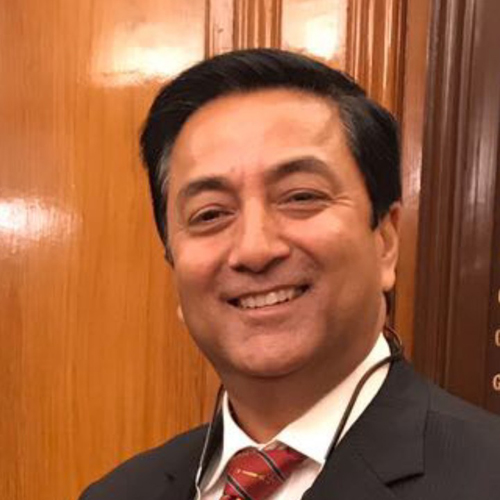Opinion
Times are different
Nepal’s political stability and national security are of international significance
Binoj Basnyat
Though global trends and phenomena have made the world borderless and interdependent, a combination of contested issues ranging from the systems of division rather than the unity of collective beliefs to the management of scarce resources have invited multidimensional insecurities. As a result, conflicts are possible in the world and the South Asian region. There are two important global transformations that need to be considered. First, a shift in the political gravity of international affairs from the Atlantic to Asia-Pacific region that strengthens the concept of geo-economic regionalism and multi-literalism and, second, an increase in transnational ecological, social, gender and peace movements by civil society. They will reclaim popular sovereignty, security, justice and identity.
On the regional front, the only comprehensive global power’s rebalancing policy towards South Asia determines the diplomatic proceedings and dealing with both the big neighbours China and India. The major political and social transformations in Nepal are the establishment of a federal republic following a major political upheaval, transformation from a Hindu to a secular state and the impasse over the constitution. Significant changes in internal and external dynamics have taken place to transform Nepal into a plural, democratic, multi-ethnic, federal and secular state.
National scenario
Nepal’s geopolitical location and unfolding global security trends have made its political stability and national security a priority for groups beyond its borders. Many events, including but not limited to political agitations and civil disobedience, have aggravated Nepal’s place in the region and the world.
Each political party must consider two factors: How has Nepal’s national independence, sovereignty and territorial integrity continued till date? And what are the future threats to Nepal’s integrity from probable forces within the federal body politic as well as from outside? The new constitution has aroused disagreement especially in the Tarai with the Madhes Rights Struggle Committee and Madhes-based political parties leading the agitation. The Madhes agitation and peaceful protests are normal in a democracy, but provocation by interest groups, spoilsports and a harsh crackdown by the administration and law enforcement can aggravate the unrest. Moreover, the competition, duplication of efforts and the mismanaging of the two law enforcement forces may lead to unwarranted conditions.
Can the Madhes Andolan snowball into a scenario of national insecurity in the coming days?
The way forward can be divided into four major sections: National security, governance, corruption and visionary leaders. First, the National Security Council should act to ensure overall security. It should protect the state through a variety of power projections like politics, diplomacy, economy and the strength of the Nepal Army. The threat to security has varied from conventional to non-state actors, natural disasters and even multinational and non-governmental organisations.
Security concerns
Geo-strategically located between two rising powers, Nepal faces an array of traditional and non-traditional security concerns that require a new comprehensive national security architecture. The National Security Council needs to be redesigned to deal holistically and proactively with issues like terrorism, energy, migration and population growth, climate change, border management, environmental threats and food. It should be turned into a strategic, proactive and cross-ministerial body that can advise the council of ministers on a full range of security issues. It can undertake measures to ensure national security by maintaining effective armed forces, using diplomacy and the intelligence services and implementing civil defence and emergency preparedness measures.
National security in Nepal can be defined into four categories—survival, vital, major and peripheral. The vital points, important issues and priority of national interests and policy can be independence, territorial integrity, sovereignty, national unity, economic prosperity, social harmony, multiparty democracy and security of culture and traditions. The law enforcement forces have professionally developed to be dedicated to serving the people and the law, and any undesirable action will not do good to the institution or the overall law and order situation. Commitment is more preferable than competition in the law enforcement forces, and they must not take advantage of the situation but rather act professionally and abide by the norms and values as a para military and civil police and play a constructive role in a democracy and strengthen law and order.
Other factors
Second, good governance whether in the developed or developing countries is a challenge and needs to be addressed. The services provided by the government to the people must be transparent and visible. Effective and transparent services are the need of the hour.
Third, rampant corruption in all sections of the government including the security forces is visible and needs to be curbed without delay. Delays will cause irreversible and irrevocable damage to the professionalism, discipline, obedience and values of all the groups as discipline is the bridge between goals and accomplishments.
Finally, the country needs visionary leaders in the legislature, executive, judiciary, bureaucracy and the security forces. The recent appointment of the first woman chief justice is an example.
Political will to amend the constitution to address the legitimate demands of the Madhes-based political parties is required. Political will and long-term vision are the most important requirements to construct an environment for political stability, economic growth, national development and educational opportunities. Education for the underprivileged will open the way for national stability and a peaceful and prosperous Nepal in the coming years.
Basnyat is a retired Major General and holds an MPhil degree in defence and strategic studies




 25.14°C Kathmandu
25.14°C Kathmandu










